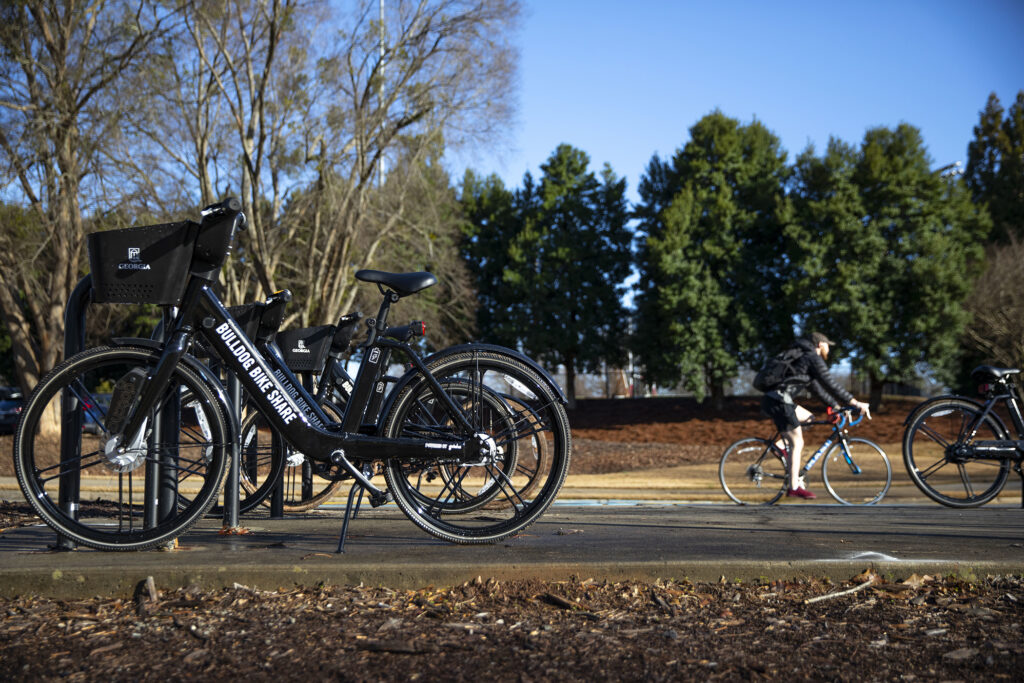In the early days of the pandemic as gyms were shutting down and team sports were ceasing play, it wasn’t clear whether exercising outside was safe.
“The early information on exercise-based virus spread was inconsistent and sometimes scary, but we’ve learned that very few people get sick from being active outside, ” said Jennifer Gay, an associate professor in the University of Georgia’s College of Public Health who studies how to get people more active in their daily lives.
In fact, Gay says research over the last months has shown that exercise and physical activity are important tools for maintaining physical and mental well-being during the pandemic. As the temperatures get cooler on campus, she urges the UGA community to get out and move.
Can you describe some of the physiological benefits of exercise, and how they can benefit people during this pandemic?
Exercise, and physical activity more generally, can prevent or help manage a number of chronic conditions, and participating in regular activity can also strengthen bones, improve cognitive function and help people lose weight.
For most people, physical activity also boosts immune function, which is especially important during this pandemic. When you exercise or move around regularly throughout the week, you increase blood flow and immune cells move around the body, enhancing your body’s ability to fight off bacteria and viruses. This can lead to fewer infections, but also shorter duration of symptoms if you do get sick.
What are the additional psychological benefits of exercise?
One of the most important mental health benefits of exercise right now is feeling less stressed. Stress decreases our body’s ability to fight infections, so exercising helps reduce risk of infection but also the stress that may increase risk, too. Greater activity levels are linked to fewer symptoms of depression and anxiety, and having a more positive mood. If you like exercising with family or friends, the social connections can decrease feelings of loneliness and isolation, which are more common during the pandemic.
Do these benefits apply to any exercise or is there an added benefit to getting active outside?
The good news is that these benefits apply to all kinds of activity. Being active outdoors can be good for our health in different ways. Spending time in green or blue spaces like parks, forests or lakes contribute to improved mental well-being. And if you see other people outside in your neighborhood or parks, this increases feelings of trust and cohesion in the community – something we all can benefit from during a pandemic.
What are some ways UGA community members can increase their physical activity outside on campus?
There are many ways to be active on campus. Let’s start with how we get to campus – the Oconee Rivers Greenway Trail now connects east Athens to the east side of campus near the School of Music. So, students, faculty or staff can access the Greenway Trails to commute to campus, or just to take a walk or bike ride along the river. There also are many walking and running routes posted online that go through or around campus.
And Bulldog Bike Share now has electric pedal-assisted bikes at 22 hubs that anyone in the community can access through their app. These bikes can be helpful for people who aren’t quite ready to tackle the Athens hills without a little help.
Can people exercise safely indoors or with others?
People generally are at greater risk if they exercise indoors in close proximity to others. Social distancing and wearing a mask can reduce risk, even indoors. A great workaround is to find workout buddies or “quaranteams” who only exercise with you and are minimizing their exposure in other situations.
If you want to exercise outdoors, but not around a lot of other people, try to choose times or places where pedestrian traffic is light. For example, Saturday mornings on Milledge Avenue have fairly light car traffic, but lots of pedestrian traffic.
Learn more about the Oconee Rivers Greenway System and Bulldog Bike Share.
